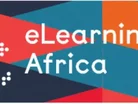A turning point for African economies

More than ever before Africans are turning to ICT-supported learning to grow their economies.
In 2013, the eLearning Africa Report found that 40 percent of African technology-assisted learning professionals were using ICTs specifically for skills training, up from 18 percent the previous year.
The benefit of ICT-supported learning is that it allows employers to provide vocational training to a great number of workers for little cost.
This year’s eLearning Africa, 28 – 30 May in Kampala, Uganda, will explore how technology is revolutionising learning and training across the continent, under the theme Opening Frontiers to the Future.
“Many African countries are seeking to diversify their economies and stimulate sectors such as tourism and finance, but skills shortages are preventing them from doing so”, said Rebecca Stromeyer, founder of eLearning Africa.
“eLearning will allow more and more African countries to easily train the next generation of in-demand workers”.
Innovative people and organisations across the Continent are working to fill in this “skills-gap”. Leading this movement is LEAP Africa, which has equipped more than 30,000 youth, business owners and professionals to lead positive change in their personal lives, business ventures and local communities.
Iyadunni Olubode, Executive Director of LEAP, and keynote speaker at eLearning Africa 2014, emphasises the role that using technology to support learning can play: “eLearning tools, including audio and video, are critical in reaching the Continent’s teeming population”.
Dr Bitange Ndemo, former Permanent Secretary of Kenya’s Ministry of Information and Communication and an eLearning Africa 2014 keynote speaker, believes that vocational skills often do not receive the recognition they deserve.
He said: “We have spent many years trying to focus on theory and hoping that it will translate to skills. This is a false belief.
“Countries that are successful have a strong skills development programme. In Kenya while there are many jobs, there is widespread unemployment because the youth lack the skills. This problem can be solved if on-line content in all trades, including soft skills, is widely accessible.
“Many youth are known to shun vocational training in favour of non-existent white collar jobs. There is need to encourage the youth to take up blue collar skills that offer many opportunities for training”.
eLearning Africa 2014 will bring together policy experts, educational professionals and business leaders to tackle this and other topics.
Hosted by the Republic of Uganda, the conference's wide-ranging plenaries, sessions and exhibitions will showcase the inspiring stories, innovations and research that make up today's complex picture of ICT for development, education and training in Africa.
Renowned for its vibrant, stimulating atmosphere, eLearning Africa is the place to discuss Africa's exciting future. This year's conference will bring together more than 1,500 technology and education professionals.
- Tullow Oil reveals plans for Africa for 2019Leadership & Strategy
- Uganda introduces new rule for telecommunications firms to share infrastructureLeadership & Strategy
- INFINIDAT appoints Pinnacle to extend strategic reach to South AfricaTechnology
- Mastercard, Centenary Bank and M-KOPA Solar launch pay-as-you-go solar in UgandaLeadership & Strategy
Featured Articles
SAP has announced it has appointed a new President for a newly-created EMEA region, aiming to make the most of the opportunities of cloud and AI technology
Technology giant SAP has expanded its portfolio with the acquisition of LeanIX, a leader in enterprise architecture management (EAM) software
To help businesses achieve increased productivity, Siemens and Microsoft are deepening their partnership by showcasing the benefits of generative AI



